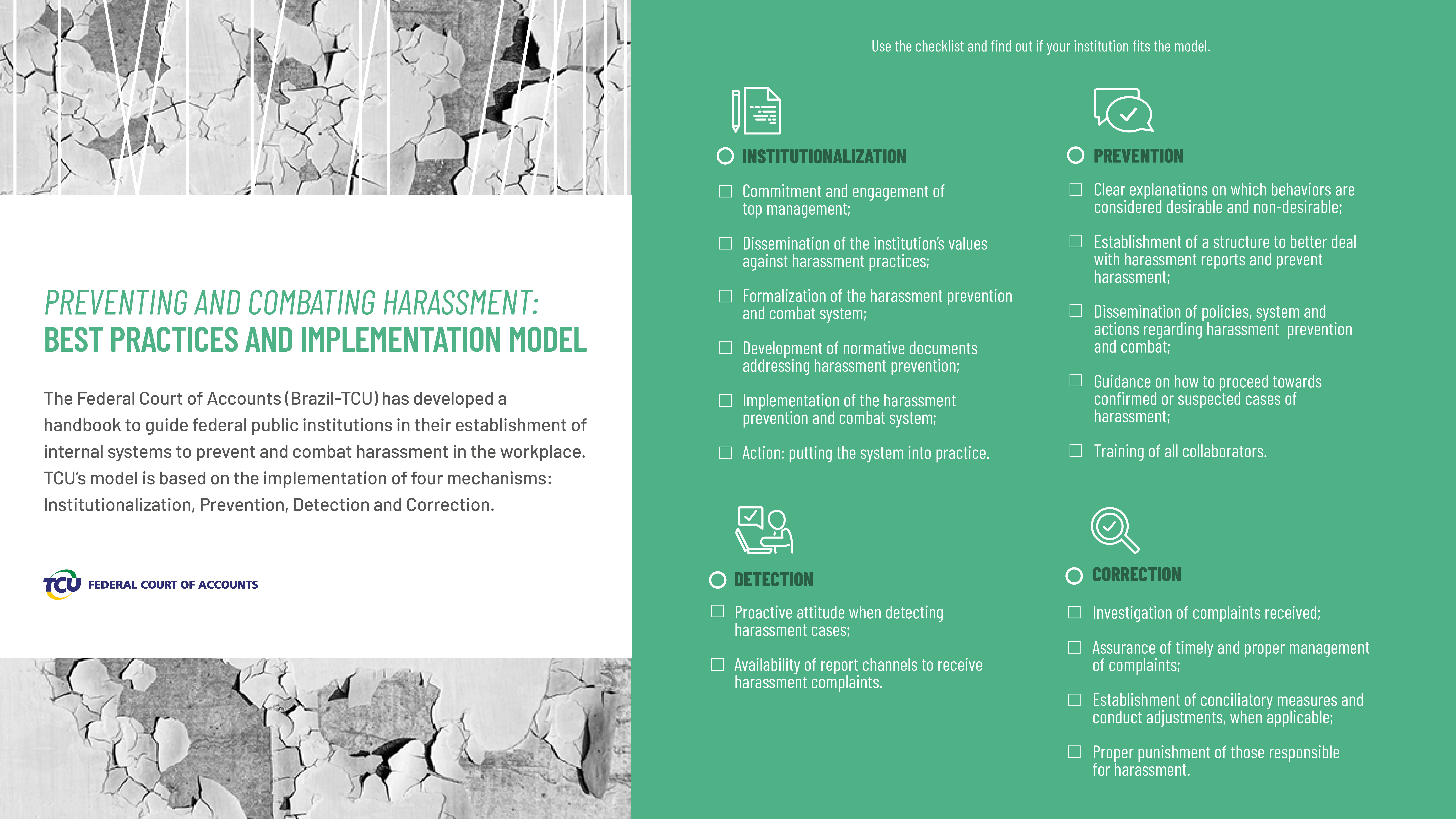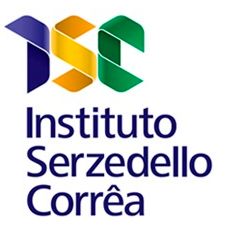Tribunal de Contas da União
The TCU presents a model to prevent and combat sexual and moral harassment
Harassment is directly linked to gender inequality and must be strongly fought against by institutions as a mechanism to eliminate barriers to female growth in the marketplace, said the TCU vice-president, Minister Bruno Dantas, during the presentation of the model developed by the Court to prevent and combat harassment. This model shall be a reference to future audits carried out by the TCU.
“I am positive that the model that we have developed will provide tools, practices and guidance that may be used by institutions and even adapted by them according to their culture, characteristics and needs”, Minister Bruno Dantas.
Minister Dantas also highlighted other activities developed by the Court with focus on bringing awareness to the fight against harassment, such as the internal campaign that started during Minister Ana Arraes’ presidency. “We cannot be blind to such a grave problem which brings enormous damage to organizations, such as decrease in productivity, increase in numbers of sick leaves, expenses with compensations and increase in the number of cases being forwarded to the Judicial Power”, he pointed out.
The model developed by the TCU is made up of four mechanisms that may be applied to bodies of the federal public administration as a way to reduce harassment and discrimination. The model may also work as a guideline so organizations may assess their maturity level regarding this matter. The mechanisms are:
1. Institutionalization – Commitment and engagement of top management to implement the system to prevent and combat harassment.
2. Prevention – The institution establishes a structure to better deal with harassment reports as well as prevent such cases. This policy is then disseminated and all the staff is trained on how to proceed towards confirmed or suspected cases of harassment.
3. Detection – A channel to receive complaints must be incorporated into the organization’s structure. In addition, proactive actions must be taken in order to reveal possible harassment cases.
4. Correction – Investigation of complaints received and guarantee that they will be addressed in a timely manner. Establishment of conciliatory measures and conduct adjustments, in addition to assurance of a proper punishment to those responsible.

This topic has been a constant concern to the Court. Minister Dantas, during the Full Court session held on October 28 2021, proposed to the TCU that a performance audit be carried out assessing the system used to prevent and combat harassment, considering that the issue “in the work environment not only harms the victims, but also the institution where it takes place”.
Related studies were carried out on Brazilian and international public institutions: Government Accountability Office (GAO), the Supreme Audit Institution from the United States; the Controller Office of the City of Philadelphia; the Office of the Auditor General of Canada (SAI Canada); the Victorian Auditor-General's Office (VAGO – SAI Australia); as well as parliaments from the United Kingdom and European Union.
Based on the results, a model was proposed to assess the system to prevent and combat harassment, which was launched last May and is available in Portuguese at https://portal.tcu.gov.br/prevencao-e-combate-ao-assedio-praticas-e-modelo-para-implantacao.htm


